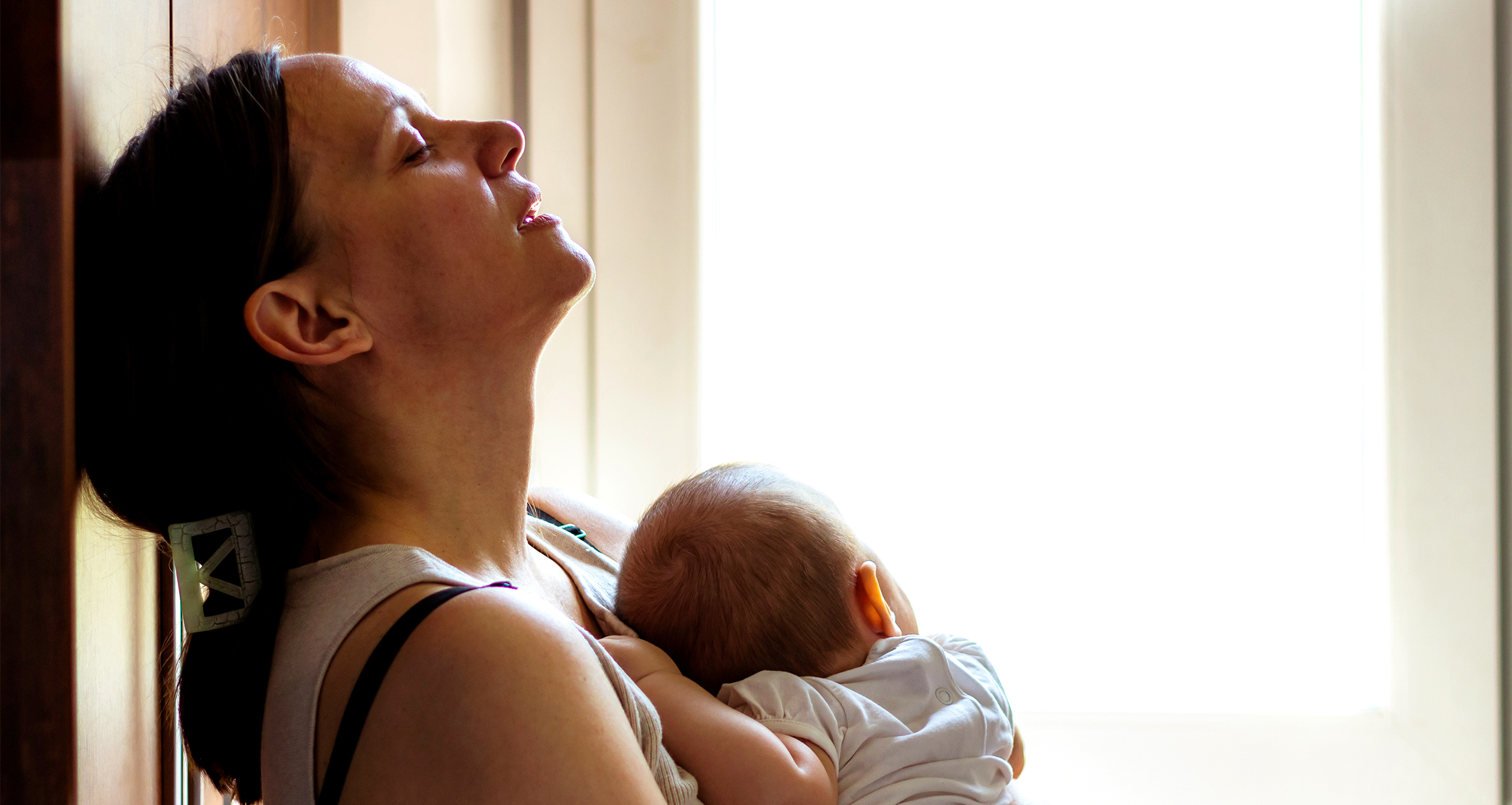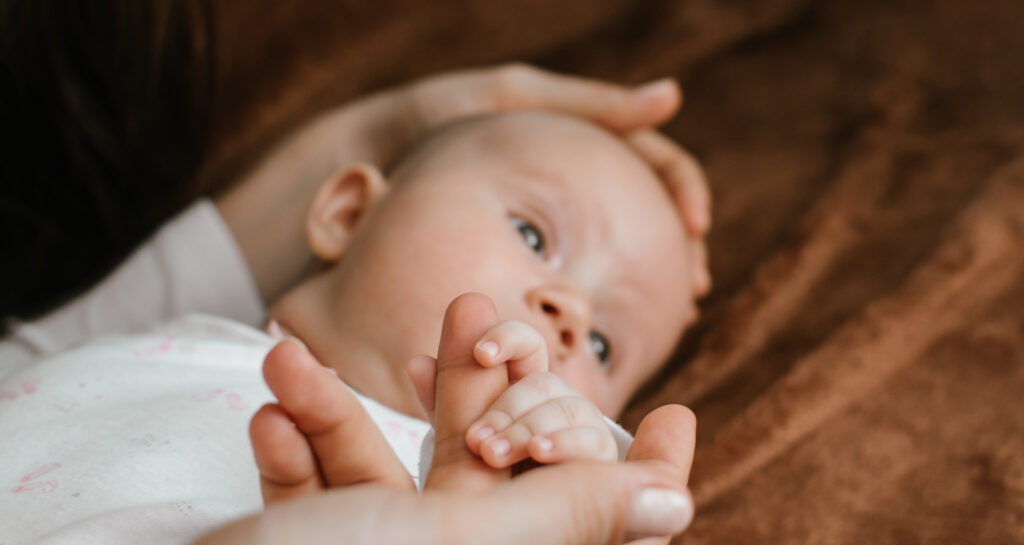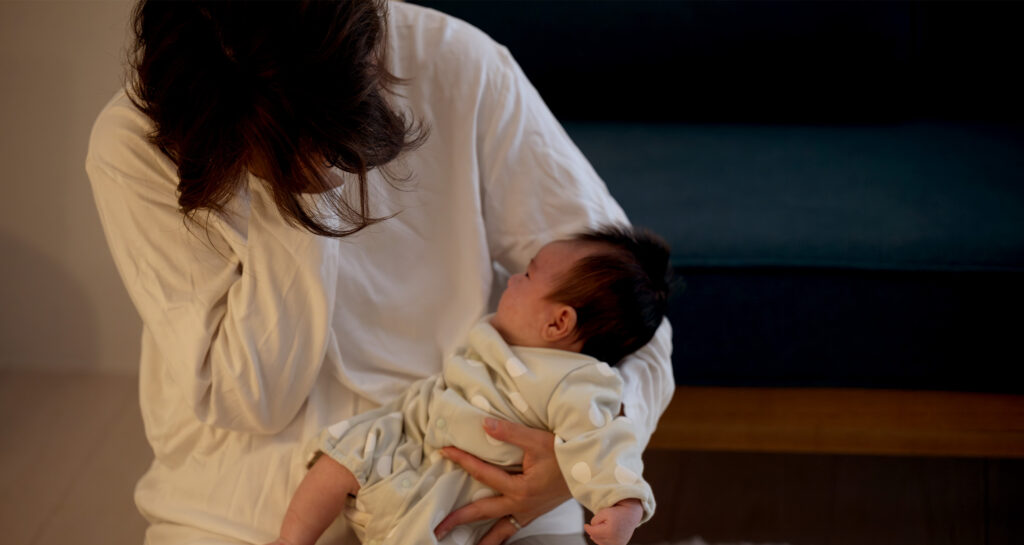How to tell if your friend has postpartum depression
Published on May 18, 2025

Many people associate early motherhood with joy, a deep sense of purpose, and peaceful days spent snuggling a newborn—moments that seem to outweigh the exhaustion of sleepless nights. And while that’s often part of the picture, maternal mental health struggles are both real and common. Up to 1 in 5 women experience postpartum anxiety, and about 1 in 8 face debilitating postpartum depression. If you haven’t experienced it yourself, you likely know someone who has—or will.
Postpartum mental health conditions can be hard to identify. Many mothers downplay or hide their symptoms, often out of guilt, fear, or a sense of inadequacy—especially if those symptoms include intrusive or frightening thoughts. Whether you’re supporting a newly postpartum friend or navigating those early weeks yourself, here are some signs of postpartum depression, anxiety, or other mental health concerns—and what to do if you notice them.

The “baby blues” don’t go away
Emotional highs and lows are common in the first few weeks after birth. Many mothers experience the “baby blues”—intense mood swings, tearfulness, and overwhelm—especially during the first week postpartum. But if sadness, hopelessness, or constant fatigue linger past the first month or two, it could point to something deeper, like postpartum depression.

There’s little or no bonding with the baby
Bonding looks different for every mother and baby, and it doesn’t always happen instantly. Still, a complete lack of connection can be a red flag. A mother may seem indifferent or emotionally checked out—or she might desperately want to bond, but feel unable to. Both can be signs of postpartum depression.

There’s constant worry about the baby
It’s natural to be protective of a newborn, but if a mother seems unable to rest or let others help due to overwhelming fear for the baby’s safety, she may be experiencing postpartum anxiety. Compulsive behaviors—like redoing basic tasks until they feel “just right”—can also be a sign of postpartum OCD.

Your friend seems consumed by anger
Postpartum rage is one of the least talked-about symptoms of maternal mental illness, but it’s more common than people think. Sudden, explosive anger—often triggered by overstimulation, chronic sleep loss, or the pressures of early motherhood—can be a signal of underlying postpartum depression or anxiety.

Thoughts become intrusive or disturbing
Many mothers have fleeting thoughts about their baby’s safety. But if these thoughts are persistent, distressing, or include fears of harming the baby—or oneself—it’s time to seek help. If a friend confides in you about such thoughts, believe her. She needs support, not judgment.

If your friend shares any of these symptoms with you, thank her for trusting you. If you notice them yourself, gently express concern with empathy and compassion. You can also talk to her spouse or a close family member if you’re unsure how to approach the subject yourself.
Postpartum mental illness is serious—especially when thoughts of harm are involved. Encourage your friend to speak with her doctor or a mental health professional right away. But even when symptoms aren’t severe, every mother deserves care and support. Offer to help however you can—whether it’s dropping off dinner, watching the baby, or simply listening without trying to fix anything.
The postpartum season can be challenging, but your steady support can help light the way through.



